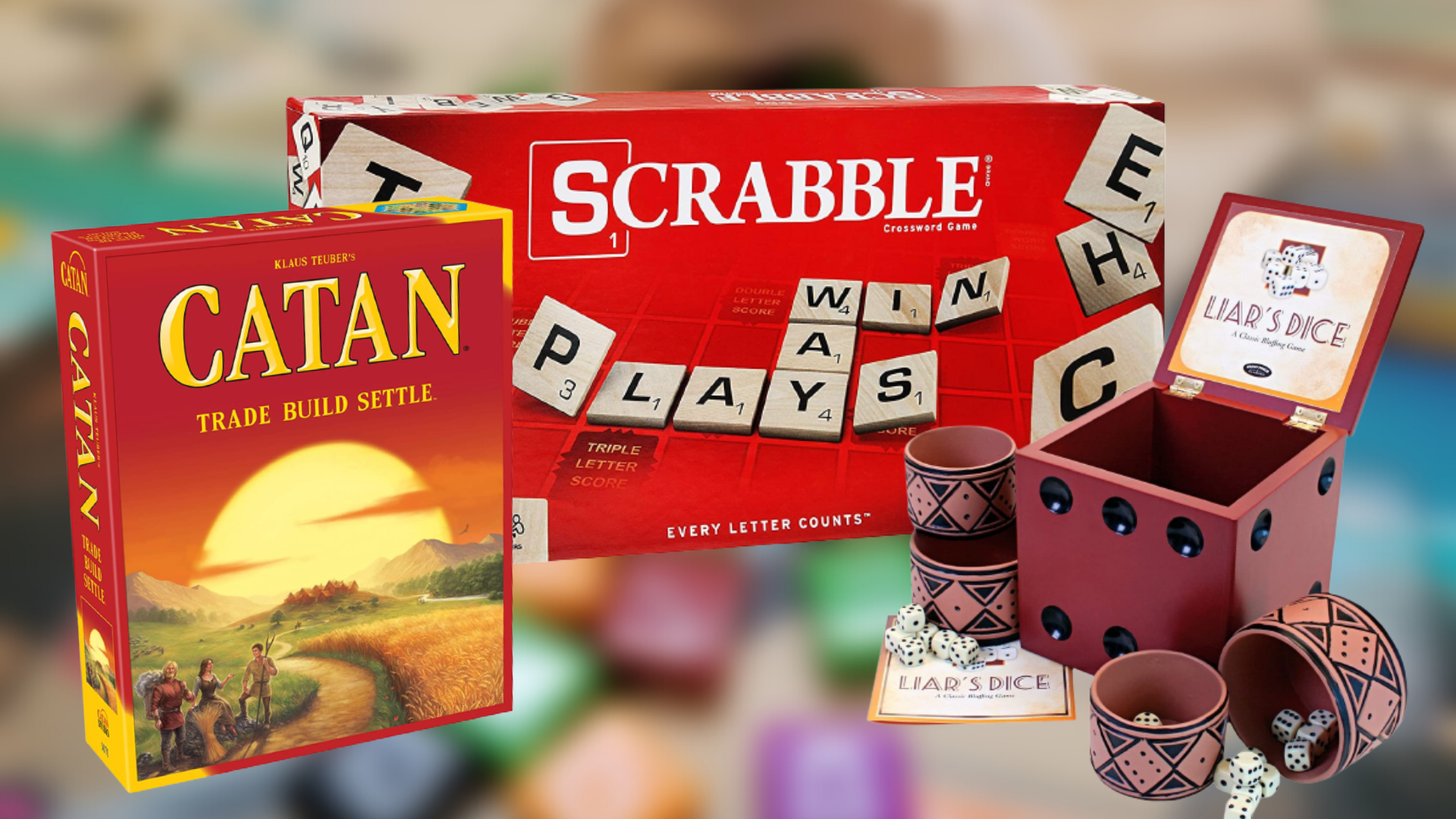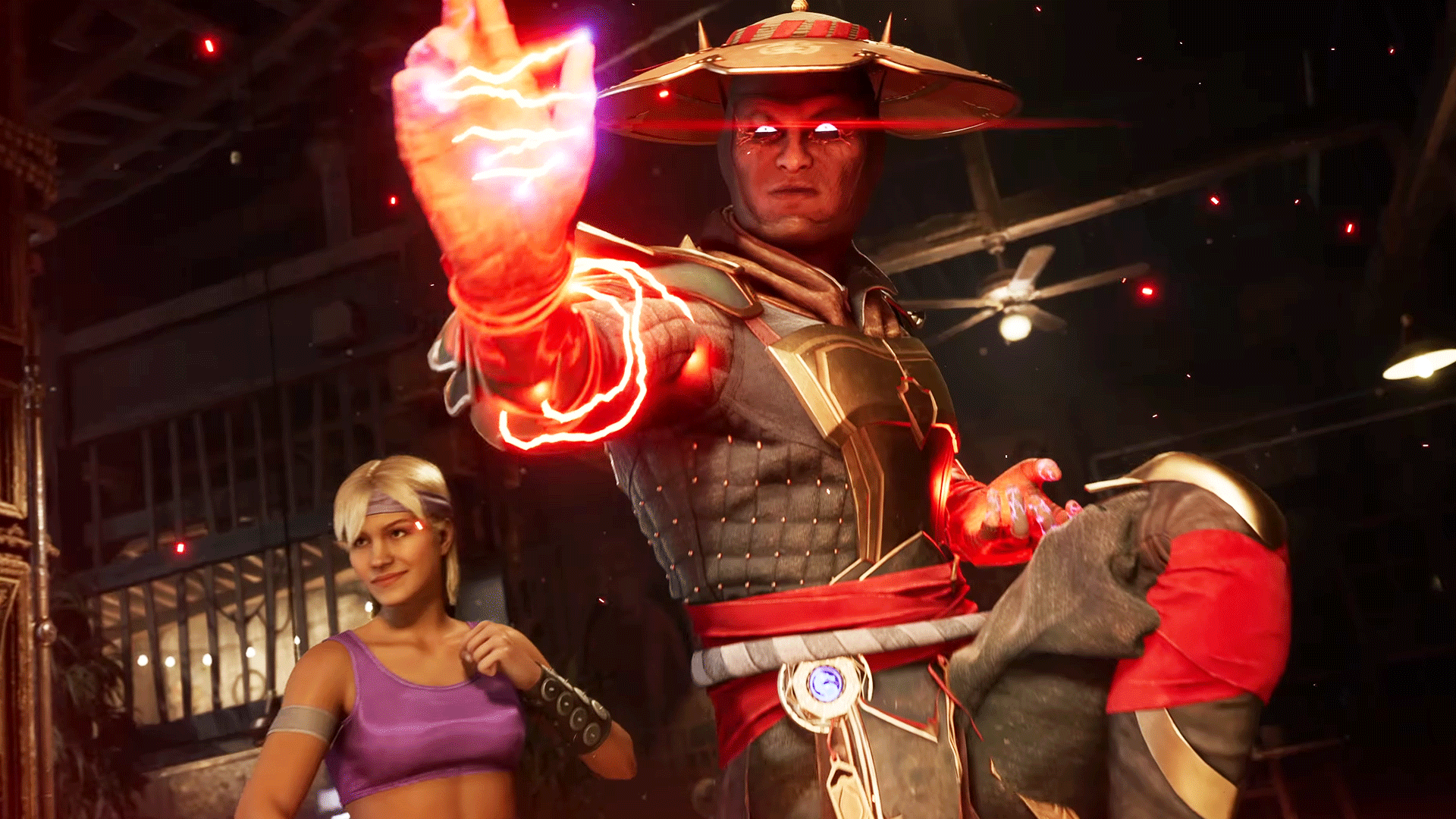Board gaming is great in part because of the varitey of new options available nowadays. You'll find plenty to choose from, whether you're interested in family board games, strategy board games, or just about any other genre. But just because modern games are the best they've ever been, that doesn't mean older games are bad. For the best board games, there's good reason they've been popular for a really long time.
Modern games are mostly the product of a design trend that dates back to the mid-nineties. So it's of particular interest to go digging for gold in the years prior to that explosion. Here, presented in reverse chronological order, are some of the best classic board game that stand the test of time. Some of these will likely also be on sale during Black Friday 2024.
TL;DR: The Best Classic Board Games
- Azul
- Pandemic
- Ticket to Ride
- Settlers of Catan
- Sherlock Holmes: Consulting Detective
- Can't Stop
- Acquire
- Diplomacy
- Yahtzee
- Scrabble
- Othello
- Crokinole
- Liar's Dice
- Chess
- Playing Cards
- Go
Don't have time to sift through the blurbs below? Here's a cheatsheet for what games are included, from most recent to earliest.
Azul (2017)
Despite only having been released in 2017, and an abstract to boot, a genre that’s notoriously hard to sell, Azul has all the makings of a modern classic. It’s a delight to look at, featuring a huge bag of bright, chunky, sweet-sized tiles. The gameplay is easy: you take all the matching tiles from one of several pools each turn and fit them in rows on your board, which have room for between one and five tiles. Fill a row and goes onto your scoring mat, where you get points for neighbouring tiles and completing rows, columns and matching sets. Simple, right? Except a single play will leave you astonished at the variety, depth and subtle interaction this straightforward formula supports.
Pandemic (2008)
How can the game that launched the entire, now hugely popular, genre of cooperative games not rate as a classic? It wasn’t the first title that had all the players working together to defeat the game scenario, but its mix of clever mechanisms and easy rules helped it conquer the world. Which is ironic, since you’re trying to save the world. New diseases are threatening the globe, represented by cubes in major cities on the map. If too many accumulate, the infection will spread to neighbouring spaces which can, in turn, cause further outbreaks. Players need to accumulate card sets and use special powers to find the cures, but with the city cards that control disease spread going back on top of the deck, it’s a race against time before this pressure cooker explodes.
Ticket to Ride (2004)
Developed by legendary game designer Alan R. Moon, Ticket to Ride and its many spinoffs trade on the widely-known set collection card game Rummy, making it super accessible and easy to learn. You’re picking up coloured cards that match train routes on the board, trying to connect cities that correspond to your ticket cards for bonus points. But the maps are super-tight, and other players are always watchful for a chance to block your plans, making it an incredibly exciting and tense experience. Especially so when failed tickets lose you the bonus points instead of gaining them. Fast, furious and fun, this is a franchise that’s made it into the mass market and is here to stay.
Settlers of Catan (1996)
A modern classic, now known simply as Catan, this game has fallen a little out of favor. But we shouldn't forget what a revolution it was in its time. Its mix of clever dice mechanics, trading and route planning as players competed to colonize an island was like nothing we'd seen before. In its native Germany, games like this weren't quite so novel, but its import in English kickstarted the whole modern gaming scene. It's worth playing for its historical value alone. Luckily, it remains worth playing to recall how addictive its sweet blend of luck and strategy can be.
Sherlock Holmes Consulting Detective (1981)
A bizarre blend of board game, whodunnit, and choose your own adventure, this sleuthing title was years ahead of its time. Pick a scenario and head out onto the foggy streets of Victorian London as the agents of fictions' most famous detective. Players must work together to uncover clues, solve riddles and try and piece a solution together as efficiently as they can. Do it better than Holmes himself and your group wins. Atmospheric writing elevates these scenarios into an engrossing fiction in its own right. And if you manage to solve them all, there are loads of expansion packs to puzzle through.
Can't Stop (1980)
A second Sackson classic, Can't Stop is an easier and more raucous game. It's a race to reach the top of three of the eleven columns on the board. Each column matches a possible roll of two dice and the more likely the result, the longer the column. You roll four dice, make two pairs and move two markers. Then comes the kicker: you can keep rolling, or end your turn. If you carry on and fail to roll a match, you lose your progress. It's a constant, agonizing temptation to balance luck and skill. Play it as a board game, or try the excellent mobile version.
Acquire (1964)
Some credit this game, by virtuoso designer Sid Sackson, as the progenitor of much of modern gaming. In an era where there were only mass-market titles and war games, Acquire was something new. It's a game about creating, merging and investing in companies. On your turn, you place a tile onto the grid, representing a company stock. If your placement joins two existing companies, the larger absorbs the smaller. Then, you can buy shares in any of the companies which you'll sell later for a profit, depending on the size. The result is a masterful mix of fiendish spatial challenges and economic wiles that remains fresh and thrilling to this day.
Diplomacy (1959)
Wrecking friendships for over 50 years, Diplomacy is divisive in a way few other games are. Designed by a historian to examine the political geography of 19th century Europe, the game has no randomness. Players struggle to conquer the continent, with one unit simply eliminating another in combat. It's designed so that you can't win alone: you need allies to prosper. Yet only one player can claim victory, so betrayal and backstabbing is inevitable. Its clever catch is that movement is simultaneous. You write orders down in advance, and all players reveal them at the same time. So you don't know who's kept their promises and who's turned against you until it's too late.
Yahtzee (1956)
Roll and write games, where you scribble in the results of dice or card draws, are very much in vogue right now. But let's not forget their mass-market progenitor, Yahtzee, which is far more fun than you may remember. Sure, you're in the hands of fate when you're rolling the bones. But filling in the grid takes a lot more skill and statistics than many realize. There's nothing worse than crossing in a blank and then getting the right rolls down the line. Fast, furious and family-friendly, get the pencils out and take this classic for a roll.
Scrabble (1948)
Yes, this well-known word game does take a bit too long between turns, especially with more players. But it's a fascinating and brilliant balance between vocabulary and spatial play. Sure it helps to know a lot of words when you're finding ways to lay out your seven random letters. But a player that can sneak a ten-point letter into an awkward bonus space will scoop the prize every time. And it's so well-known it's easy to find people willing to play. Grab your phone between turns, and get gaming.
Othello / Reversi (1883)
This is often presumed to be a classic two-player ancient abstract like Chess and Checkers. In fact, it's much more recent and, bizarrely, two different men took credit, each rubbishing the other's claim. On your turn you place a disk of your color, black or white, onto a grid space. The aim is to fill the grid with your color. But the disks are reversible. If you can bookend a line or diagonal of your opponent's color with yours, all the disks flip to your side. Cue a fiendish battle of wits that can suddenly swing, even late in the game.
Crokinole (1876)
Of all the many and varied dexterity games in the world, Canada’s Crokinole holds the crown. Boards aren’t cheap but they’re lovely objects in their own right. Particularly nice specimens can be mounted on the wall as a talking point. And when you get it down to play, you’ll find out what all the fuss is about as you navigate its treacherous mix of flicking skill and tactical positioning. Your goal is to get your disks into the highest scoring zones possible, but the catch is you have to flick them off existing disks to count. It’s all about trying to rack up the points while also hiding your disks behind the board pegs or other disks.
Perudo / Liar's Dice (1800)
You'll see this sold under various branded names, but the game is always the same. Everyone shakes some dice in secret, under a cup. Then they have to bid a certain number of a particular value they think the combined dice hold: seven fours, for example. Next player either ups the bid or calls their bluff. This straightforward setup disguises a wealth of statistics, guesswork and outright chicanery. Making a bid high enough to put the next player in a quandary is a wonderful moment. Being in a quandary, calling the bluff and finding the fates have rolled in your favor is better.
Chess (16th Century)
Chess is one of the most well-known strategy games, but the Chess you know has origins all the way back to 600 AD. Modern Chess was born from an Indian game called Chaturanga in which the pieces, board, all look very similar. One of the first true masters of Chess didn't appear until that 16th century after the game had spread and evolved throughout Asia and Europe. Nowadays, the game of Chess is huge across the globe and there are a ton of great Chess sets worth adding to your board game collection.
Playing Cards (~900 AD)
These also originated in China, and are also a game you can play for the rest of your life. Because, of course, it's not one game but thousands. Many you'll already know: Poker, Bridge and other popular titles constitute hobbies in their own right. But there are equally fun games played with slightly different decks across the world. You can play them fine with a standard 52 card deck: Jass, Scopa and dozens more. There are modern designers working with the deck to create new, strategically rich games like Ambition. Get a deck, get to Pagat.com, and it might be the only gaming equipment you ever buy.
Go (~2200 BC)
We're not including well-worn abstracts like Chess on this list. Go is huge in Japan and China, where it originated, but it's a little more obscure in the West. And that's a shame because Go is a thing of staggering genius. On your turn, you place a stone of your color atop an intersection on a grid of lines. If you can cut off all four adjoining spaces for a stone of the opposite color, it's removed. That's pretty much the entire game, yet the strategy beneath is so deep that only very recently has an AI challenged a top human player. Place one stone and you could be playing for a lifetime.
For more board game suggestions, check out our roundups of the best board games for adults or the best two-player board games.
Matt Thrower is a contributing freelancer for IGN, specializing in tabletop games. He's also been published in The Guardian, Dicebreaker and Senet Magazine as well as being the author and co-author of several books on board games. You can reach him on BlueSky at @mattthr.bsky.social.





